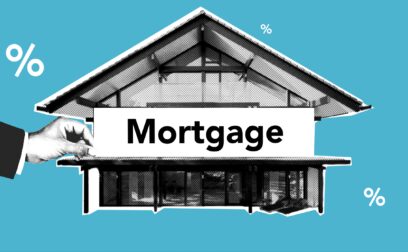A bridging loan is similar to a mortgage and is used by individuals and businesses to purchase or raise capital secured against either a residential and/or commercial property or a land asset. Unlike a traditional commercial mortgage, execution and drawdown happens much faster. The loan may be raised against a property for which a traditional mortgage may not be suitable and in certain cases where the applicant has no income.
How does bridging finance work?
The major difference between a mortgage and a bridging loan is that while a traditional mortgage lender will focus on the ability of the applicant to maintain payments on the loan, a bridging lender focuses more on the property and its suitability as security. When a bridging loan is approved most lenders will build in an interest reserve facility which allows them to take payment on the loan over the term without committing the borrower to make a monthly payment.
This provides the lender with the surety that the interest will be paid on time and provides the borrower with the comfort they don’t need to make payments that may be impossible due to cashflow constraints.
The priority for bridging lenders is the exit strategy as this is how they will get repaid: the key question for the lender is: “What will change during the term of the loan to allow the borrower to repay the loan?” Usually this means that bridging loan exits are via re-mortgage to a conventional lender or sale of the property utilised as security.
When should I use a bridging loan?
A very common misconception is that bridging loans are only used when purchasing property at auctions or when buying a new property before you have sold another property. Whilst this type of facility can be used for these purposes, they can also be utilised in other scenarios too as we will see below.
A bridging loan may be used to purchase a property that requires light or heavy refurbishment and is therefore not suitable for a traditional mortgage.
It may also be used as a non-status commercial mortgage, where a business has been suffering financial difficulties and their existing lender will not lend any more funds or reschedule their existing payments.
For businesses that have ceased trading and are waiting to sell a property or premises, a bridging loan offers a solution in circumstances where a traditional commercial bank will struggle to demonstrate the loan can be serviced and will often ask the borrower to repay the loan prior to the property sale.
How much does bridging finance cost?
Bridging loan costs vary dramatically depending upon the security type, the term of the loan and the credentials of the borrower with rates varying from four percent per annum to 18 percent per annum. Arrangement fees can also vary from one percent to three percent. While values may be up to 90 percent for some property types.
For example, the cost of bridging loan on a piece of land would be much higher than the equivalent loan secured against a typical family home in an established residential area.
The final cost of a bridging loan depends on you or your broker having access to the full market so that you are able to secure the best available deal.
Do I need a broker?
The short answer is usually, “yes”. There are a large number of bridging lenders across South Africa and due to the complexity of the process, most of them are set up to work alongside finance brokers.
The finance brokers run the process to take ownership of the relationship between borrower, solicitor, lender and other professionals involved ensuring a smooth journey to completion.
Is my business eligible for bridging finance?
Any individual, partnership or company may obtain a bridging loan if they are the owners or the intended purchasers of a property that is considered suitable security by a lender.
Any ultimate beneficial owner of a borrowing company or any individual must be at least 18 years of age.
Do banks provide bridging finance?
Traditional banks and household names are not usually the best option for those seeking bridging loans as these traditional lenders focus more on the borrower and their credentials rather than the property, when analysing a proposal.
Some smaller banks offer bridging loans, but they are typically more stringent in their underwriting approach, require more borrower due diligence and are typically slower to transact. The rates and fees from these smaller banks are, however, typically lower than traditional specialist bridging lenders and are worth considering. A knowledgeable and professional broker will guide you through the market to disclose the options that are available to you.
How long can I use a bridging loan for?
Bridging loans are seen by many as a short-term solution, though the loan terms may run from one month to up to three or more years. As borrowers will save interest and maintenance fees by exiting quickly, there is pressure for the loans to be repaid as quickly as possible.
Most bridging lenders are keen to be repaid as quickly as possible and re-circulate their funds by supporting another borrower, so most do not charge redemption fees which provides flexibility to the borrower. However, there are lenders who provide ‘open ended bridging loans’ which means they have no fixed term and it is up to the borrower how and when they repay the bridging loan.
If I have bad credit, can I still get bridging finance?
As the focus is on the property rather than the lender, bridging loans are often available to people for whom other borrowing is not an option or too expensive. So long as the lender is satisfied with the ultimate exit strategy and repayment of the loan, personal credit scores will be less important.
If the loan exit is via re-mortgage, then the lender will want that borrower or their credit broker to prove that a viable re-mortgage is or will be available.
Some lenders only want to deal with prime borrowers with exemplary credit ratings where others actively prefer to deal with borrowers who have suffered difficulties managing credit relationships. Again, this shows the benefit of working with a broker who knows and understands the market and can point would-be borrowers to the right lender.
As with most borrowing, the track record of the borrower will affect the interest rate and fees offered on bridging loans, though some lenders offer a ‘valuation only’ product where their primary concern is the property value and detail within the legal conveyance pack.
How can I learn more about my options?
Swoop has a dedicated team of Commercial Finance experts with over 100 years of experience between them – get in touch to see how they can help.






 yet? Register here!
yet? Register here!